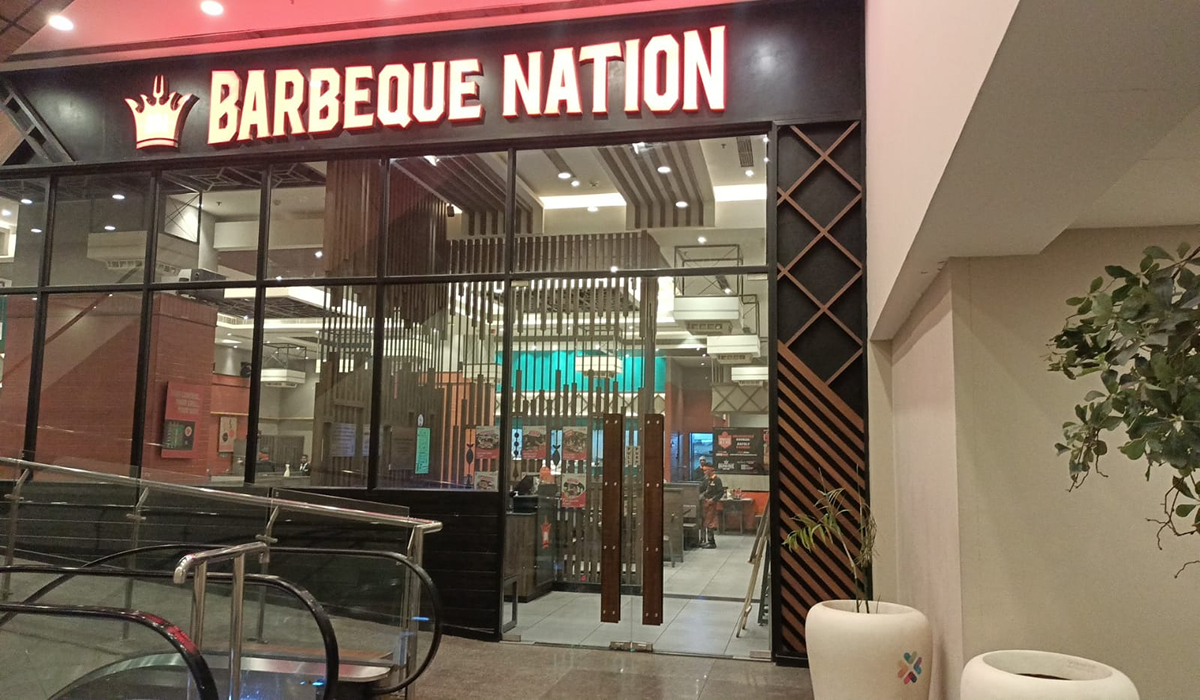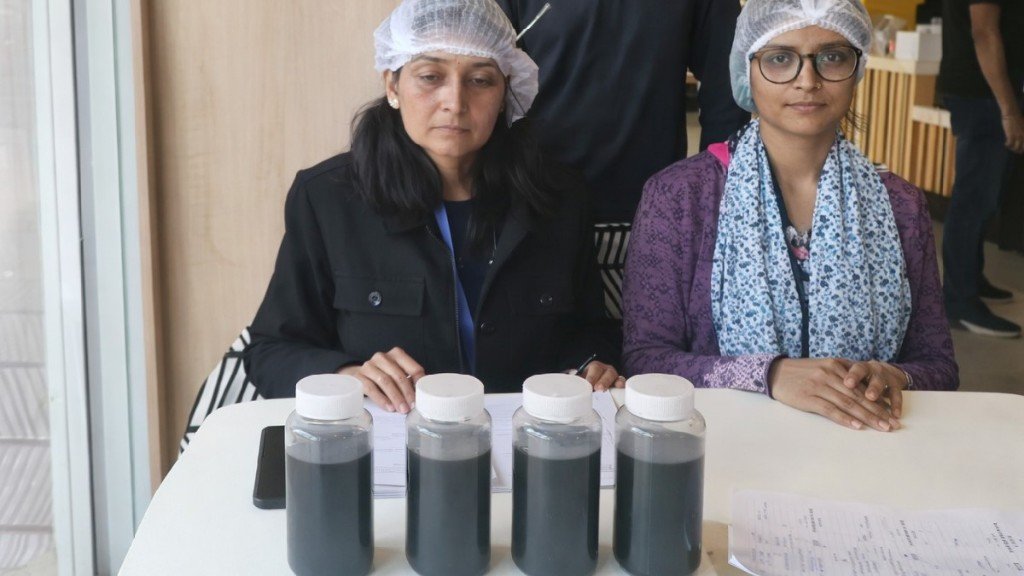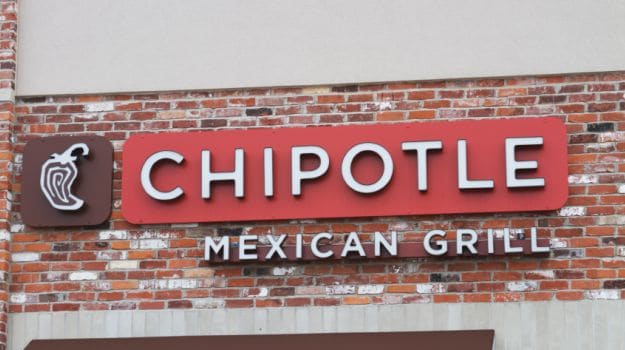Things are going from bad to worse at Chipotle Mexican Grill.The number of Boston College students who became ill after eating at a Chipotle restaurant near its campus grew to 80 on Tuesday, at a time when the fast-food chain was still grappling with an outbreak of E. coli that infected customers in nine states.The company’s shares fell sharply after it closed stores in the Pacific Northwest and did extensive cleaning at other stores in California, Minnesota, New York and Ohio that were linked to the E. coli outbreak. Investors dumped the stock again on Tuesday after learning about the students who were sickened in Boston.
The stock dropped $9.63 to close at $542.12 on Tuesday.In a note sent to students Tuesday, Boston College said all the affected students had been tested for E. coli and norovirus at the direction of the Massachusetts public health authorities. At least eight of the students were from the school’s basketball team.Norovirus is the most common cause of gastrointestinal illness in the country, according to the Centers for Disease Control and Prevention, infecting as many as 21 million people and resulting in as many as 800 deaths in a year.In a statement, Chipotle said it had temporarily closed its store at Cleveland Circle in Boston while the investigation into the cause of the outbreak continued. “We do not have any evidence to suggest that this incident is related to the previous E. coli incident,” the company said. “There are no confirmed cases of E. coli connected to Chipotle in Massachusetts.”Health officials in Boston said several violations had been found in that store during an inspection on Monday, including meat held at an improper temperature and an employee who was working while sick.At a Sanford C. Bernstein & Co. investment conference in New York on Tuesday, Chipotle said it might be forced to raise prices next year to cover the costs of an enhanced food safety program and business lost because of the closed stores and slumping sales. Last week, it filed a statement with the Securities and Exchange Commission saying that the E. coli problem would push down sales in stores that had been open at least a year by as much as 11 percent in the fourth quarter.The source of the tainted food that caused the E. coli outbreaks at Chipotle has not been disclosed. Chipotle is not the only business that has confronted food safety problems during the holiday season. Costco, Starbucks and Wal-Mart have been involved in a recall of prepared foods containing celery that may have carried a different strain of E. coli than the one involved in Chipotle’s cases.And roughly one-third of the people attending an office party in Seattle that was catered by Bon Appétit Management became ill with norovirus, which can be spread by an infected person, contaminated surfaces, or food and water. Public health officials there closed all restaurants, including a Starbucks, located in the Russell Investments Center, a skyscraper in downtown Seattle.“From a consumer perspective, it must look like there are a lot more food safety challenges out there,” said Chris Morrison, chief marketing officer of Trace One, which helps other companies map out their supply chains. “I don’t know if there are more or less such challenges than in the past, but there is a great deal more information about them.”Morrison said a raw material could go through many steps before arriving at a company. Tomatoes, say, may go from a farm to a processing plant, where they are then divided up, with some going into cans and others going into ketchup, and then sold to a restaurant business or a big food company, where they are further modified.Jem Raw, a nut butter company in Oregon, this month issued a nationwide recall of its products for potential salmonella contamination, and Taylor Farms Pacific, one of the country’s largest produce suppliers, has been recalling celery used in the prepared foods that have been linked to that E. coli outbreak, as well as other products. Taylor Farms Pacific has been involved in several product recalls over the last several years. Bruce Taylor, its chairman and chief executive, has attributed this to the size and scale of its operations.Taylor told The Monterey County Herald in California that Taylor Farms was recalling the products “out of an abundance of caution.”Laboratory analysis of a sample of diced celery and onion produced by the company did not indicate the presence of E. coli. The CDC said on Monday that it was looking into other components of the prepared foods that appear to have carried the contaminant but that it had not ruled out the celery as the carrier.“Most companies don’t have complete visibility right down to the raw material,” Morrison said. “But there have been advances in technology, testing and protocols so that if something comes up, the government and companies can move much faster to publicize it and coordinate recalls and other steps.”
© 2015 New York Times News Service
The stock dropped $9.63 to close at $542.12 on Tuesday.In a note sent to students Tuesday, Boston College said all the affected students had been tested for E. coli and norovirus at the direction of the Massachusetts public health authorities. At least eight of the students were from the school’s basketball team.Norovirus is the most common cause of gastrointestinal illness in the country, according to the Centers for Disease Control and Prevention, infecting as many as 21 million people and resulting in as many as 800 deaths in a year.In a statement, Chipotle said it had temporarily closed its store at Cleveland Circle in Boston while the investigation into the cause of the outbreak continued. “We do not have any evidence to suggest that this incident is related to the previous E. coli incident,” the company said. “There are no confirmed cases of E. coli connected to Chipotle in Massachusetts.”Health officials in Boston said several violations had been found in that store during an inspection on Monday, including meat held at an improper temperature and an employee who was working while sick.At a Sanford C. Bernstein & Co. investment conference in New York on Tuesday, Chipotle said it might be forced to raise prices next year to cover the costs of an enhanced food safety program and business lost because of the closed stores and slumping sales. Last week, it filed a statement with the Securities and Exchange Commission saying that the E. coli problem would push down sales in stores that had been open at least a year by as much as 11 percent in the fourth quarter.The source of the tainted food that caused the E. coli outbreaks at Chipotle has not been disclosed. Chipotle is not the only business that has confronted food safety problems during the holiday season. Costco, Starbucks and Wal-Mart have been involved in a recall of prepared foods containing celery that may have carried a different strain of E. coli than the one involved in Chipotle’s cases.And roughly one-third of the people attending an office party in Seattle that was catered by Bon Appétit Management became ill with norovirus, which can be spread by an infected person, contaminated surfaces, or food and water. Public health officials there closed all restaurants, including a Starbucks, located in the Russell Investments Center, a skyscraper in downtown Seattle.“From a consumer perspective, it must look like there are a lot more food safety challenges out there,” said Chris Morrison, chief marketing officer of Trace One, which helps other companies map out their supply chains. “I don’t know if there are more or less such challenges than in the past, but there is a great deal more information about them.”Morrison said a raw material could go through many steps before arriving at a company. Tomatoes, say, may go from a farm to a processing plant, where they are then divided up, with some going into cans and others going into ketchup, and then sold to a restaurant business or a big food company, where they are further modified.Jem Raw, a nut butter company in Oregon, this month issued a nationwide recall of its products for potential salmonella contamination, and Taylor Farms Pacific, one of the country’s largest produce suppliers, has been recalling celery used in the prepared foods that have been linked to that E. coli outbreak, as well as other products. Taylor Farms Pacific has been involved in several product recalls over the last several years. Bruce Taylor, its chairman and chief executive, has attributed this to the size and scale of its operations.Taylor told The Monterey County Herald in California that Taylor Farms was recalling the products “out of an abundance of caution.”Laboratory analysis of a sample of diced celery and onion produced by the company did not indicate the presence of E. coli. The CDC said on Monday that it was looking into other components of the prepared foods that appear to have carried the contaminant but that it had not ruled out the celery as the carrier.“Most companies don’t have complete visibility right down to the raw material,” Morrison said. “But there have been advances in technology, testing and protocols so that if something comes up, the government and companies can move much faster to publicize it and coordinate recalls and other steps.”
© 2015 New York Times News Service
Advertisement









